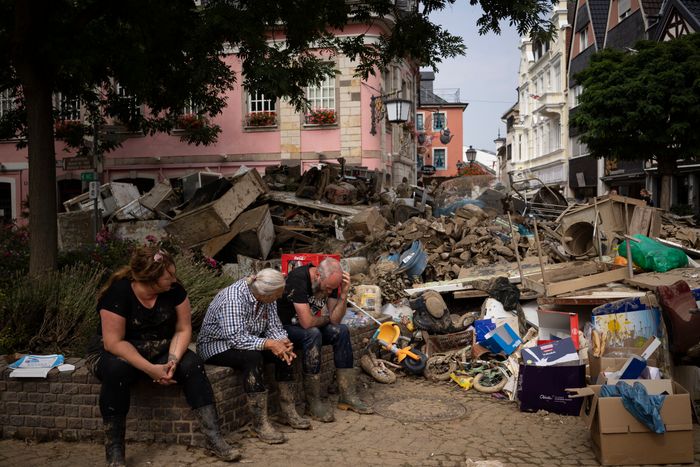The World Economic Forum’s annual risk report showed a significant increase in pessimism about global prospects, with executives and leaders worried about the longer-term fallout from the pandemic.
The report said that 84% of the nearly 1,000 experts from business, technology and politics surveyed world-wide were concerned about the global outlook, while fewer than 4% were optimistic. Many respondents expected the next three years to be characterized by consistent volatility and surprises.
The report’s authors said that the emergency response to the pandemic, while uncoordinated, had successfully averted the worst outcomes—though the world economy is still expected to be 2.3% smaller in 2024 than it would have been without Covid-19. Changes wrought by the pandemic had increased the challenges to the recovery and to building the resilience that economies and businesses need, the report published Tuesday said.
The pandemic has also eroded social cohesion in many nations, worsened mental health and widened the gap between rich and poor countries. The weak outlook, affected by rising commodity prices, inflation and growing debt problems, will increase the risk of disruption to efforts to cut carbon emissions, the report said.

Germany and neighboring countries suffered severe flooding in July.
Photo: Bram Janssen/Associated Press
A failure to deal with climate change remains the biggest medium- and long-term risk seen by respondents. Over the five-to-10-year horizon, all top five risks were estimated to be environmental and included extreme weather, biodiversity loss and natural resource crises.
Over the next five years, the main economic risks were identified as the bursting of asset bubbles and debt crises.
The report is usually published ahead of WEF’s annual meeting in Davos Switzerland. But that has been postponed for the second successive year because of the pandemic, although the forum is holding online events.
Carolina Klint of Marsh, the insurance broker and risk adviser that collaborated on the report, said the pandemic had revealed the downsides of pursuing efficiency and growth over objectives such as resilience and sustainability.
“I think the pandemic has exposed that being too lean can actually leave companies and societies vulnerable to shocks,” Ms. Klint said. “So allowing for a little bit of slack in your system can actually be a good way to help people and societies and governments bounce back more quickly.”
However, protectionist policies aimed at increasing resilience would hinder the global recovery from Covid-19, said WEF President Børge Brende, because globalization has driven much of the growth seen in recent decades.
There are other tensions as governments try to encourage recovery while some seek to pay down the debts that they have built up in recent years. Saadia Zahidi, managing director at WEF, said resolving these tensions would require “some pretty major structural changes in how economies function,” including some possibly unpopular measures around taxation.
On the other hand, said Peter Giger, group chief risk officer at Zurich Insurance Group, another partner on the report, “One of the negative consequences of the pandemic is the public perception [that] we can keep everything afloat with public money.”
A separate survey of 12,000 executives showed that in 31 of 124 countries surveyed—including Argentina, France, Germany, Mexico and South Africa—an erosion of social cohesion was seen as a top-10 short-term threat.
Meanwhile, the gap between rich and poor countries risked widening—in part because of the big differences that have been observed in vaccination rates.
The report also showed concerns about growing geopolitical divisions and competition in new areas such as the militarization and weaponization of space and in developments in cyberspace.
Write to Stephen Fidler at [email protected] and Joanna Sugden at [email protected]
Copyright ©2022 Dow Jones & Company, Inc. All Rights Reserved. 87990cbe856818d5eddac44c7b1cdeb8







